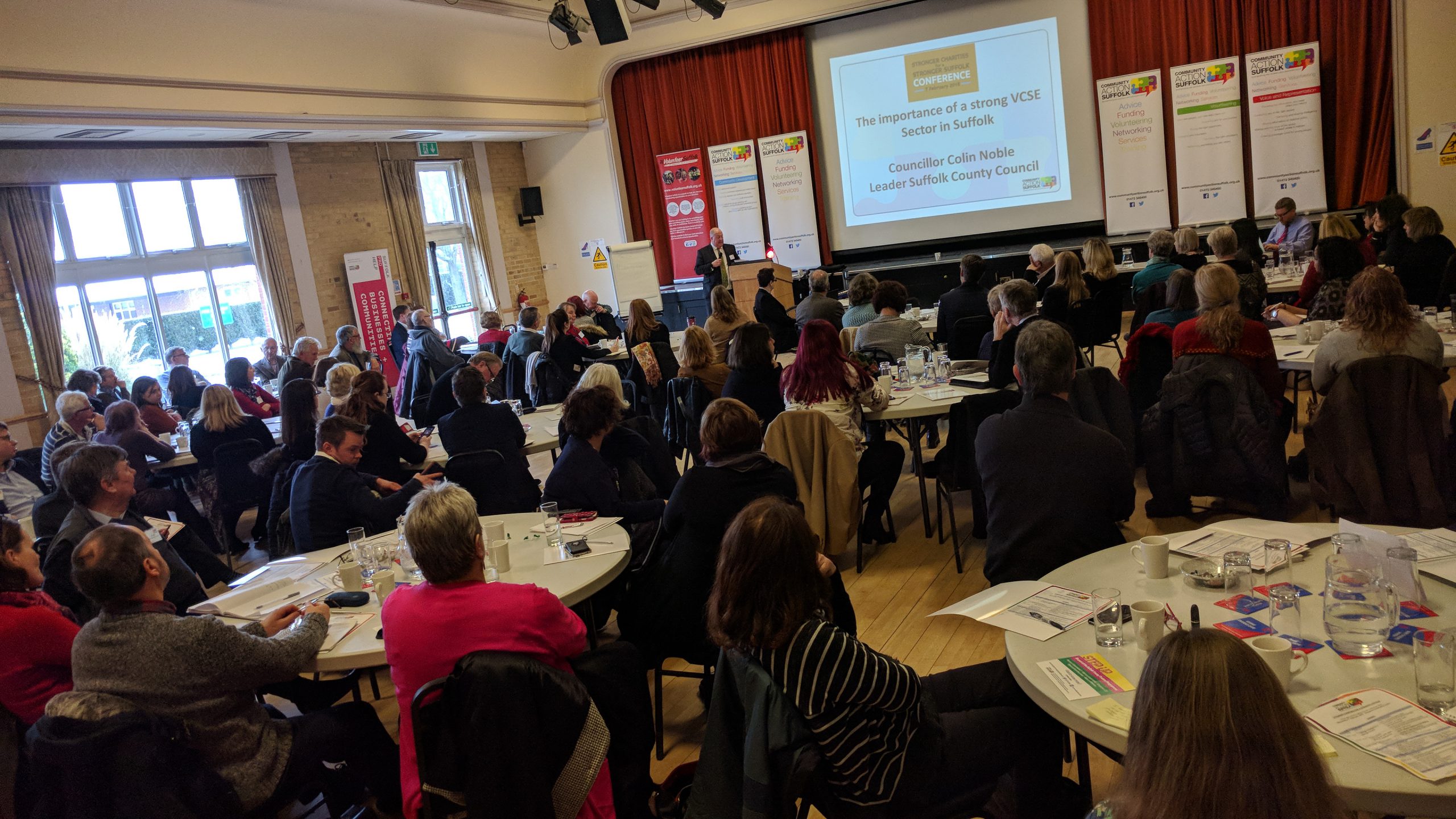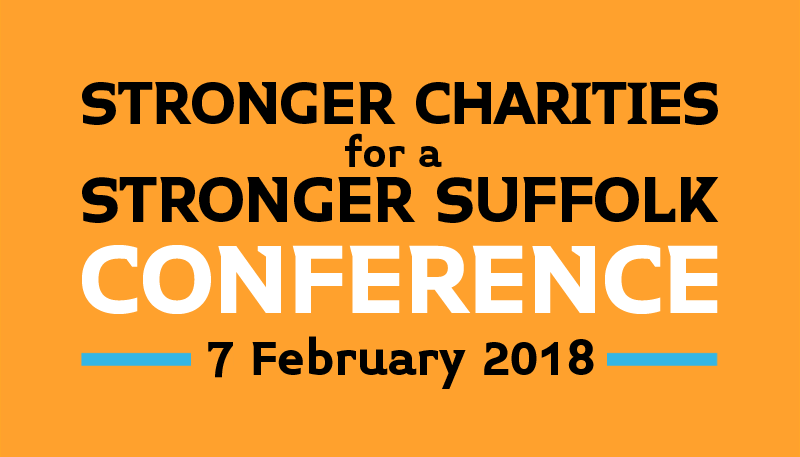Suffolk’s voluntary sector came together yesterday (7 February 2018) to consider how local charities and organisations can become stronger, for the benefit of the county and its residents.
Over 100 delegates working in, and with, the voluntary sector attended Community Action Suffolk’s “Stronger Charities for a Stronger Suffolk” conference. They heard from nationally-respected speakers responding to the House of Lords Select Committee on Charities report in March 2017 (Stronger Charities for a Stronger Society).
This report offers a number of recommendations for the voluntary sector and delegates considered how these could be implemented in Suffolk. Some of the key recommendations include better use of digital technology, engagement with local business and having a more diverse range of trustees.
Karl Wilding, Director of Public Policy and Volunteering at the National Council for Voluntary Organisations, said:
“Governance is important. We need to widen the pool of trustees and the way in which we recruit them. Trustees need better inductions to their charities.”
A common theme throughout the day was the importance of the voluntary sector to Suffolk. Organisations and charities already provide key services, particularly in health and social care, and will continue to play important roles.
Councillor Colin Noble, leader of Suffolk County Council, also spoke at the conference and recognised the importance of Suffolk’s voluntary organisations:
“A big challenge for the [voluntary] sector in Suffolk is the ageing population. The sector and the Council need to work in this.
“The relationship between the [voluntary] sector and Suffolk County Council is one of the most important relationships in the county. In Suffolk we have one of the strongest, mature relationships in the country. Today’s event is really, really important. What you’re all doing is important.”
Karl Wilding also added the importance of Suffolk and organisations like CAS:
“We need organisations like CAS to continue to deliver the messages of the [voluntary] sector. Suffolk has a lot of influential and political people.”
The response to the conference was overwhelmingly positive and Community Action Suffolk will collate feedback. CAS will publish how it takes forward the actions coming out of the conference, to help improve and develop its services to best support the voluntary sector.

